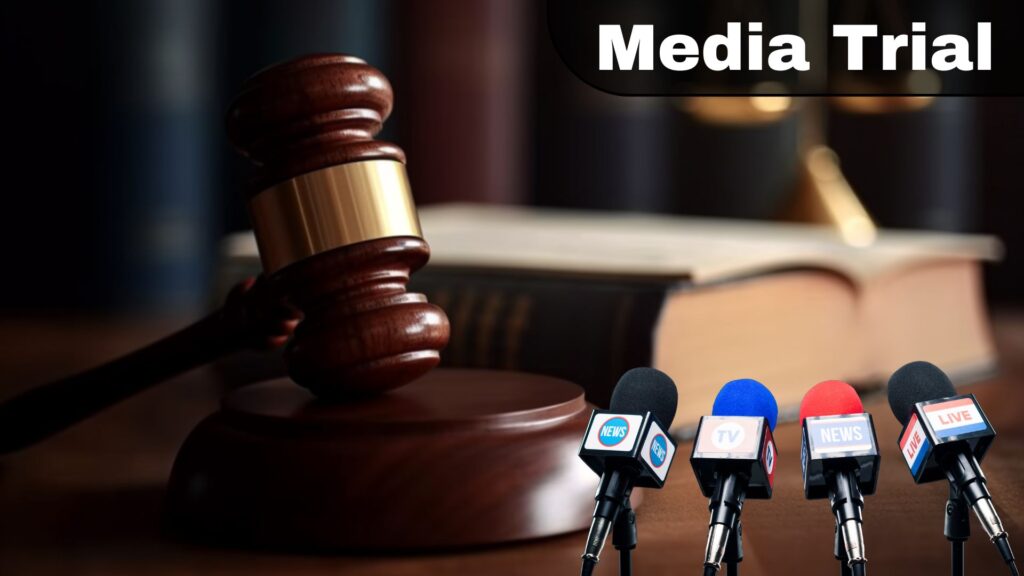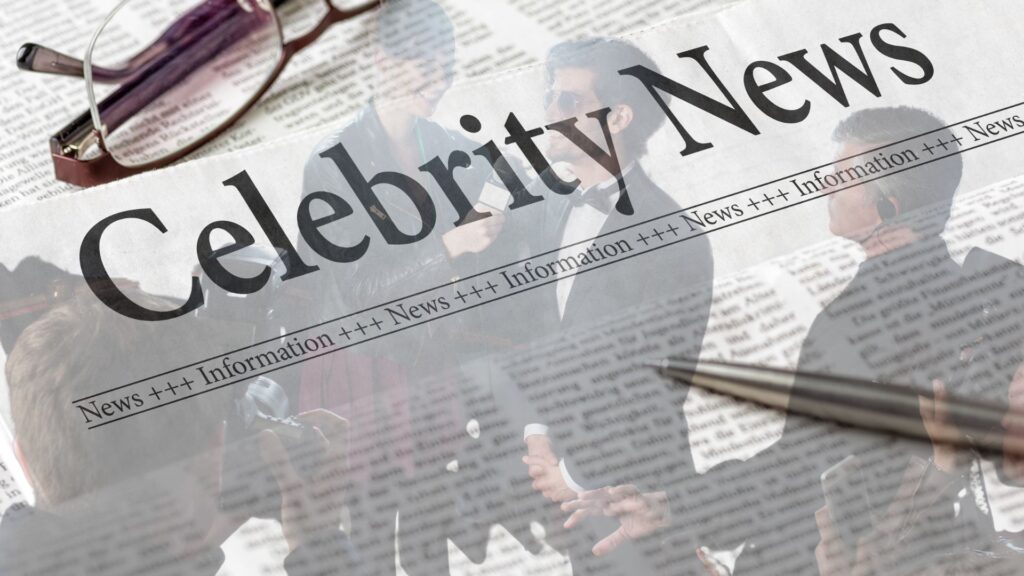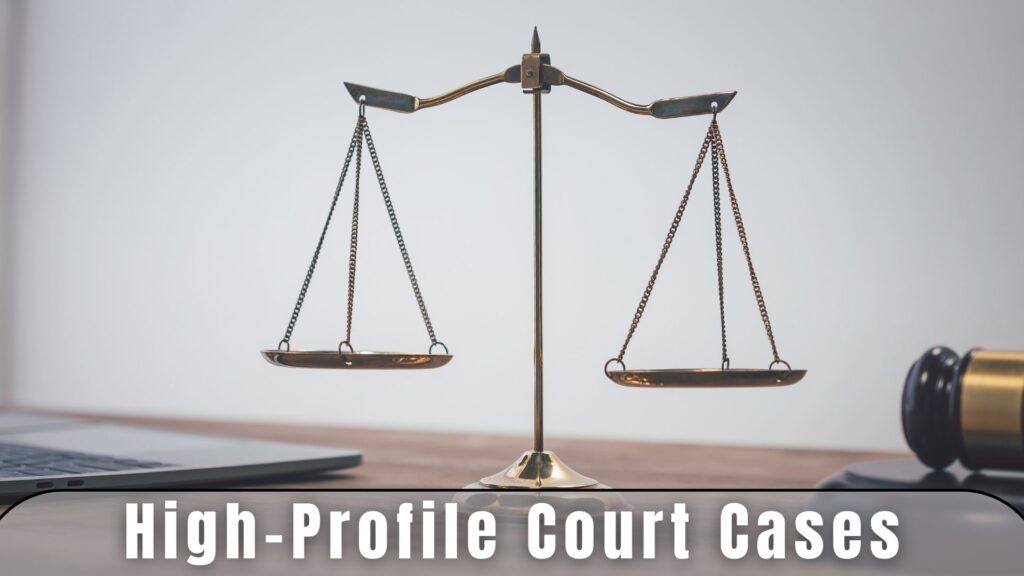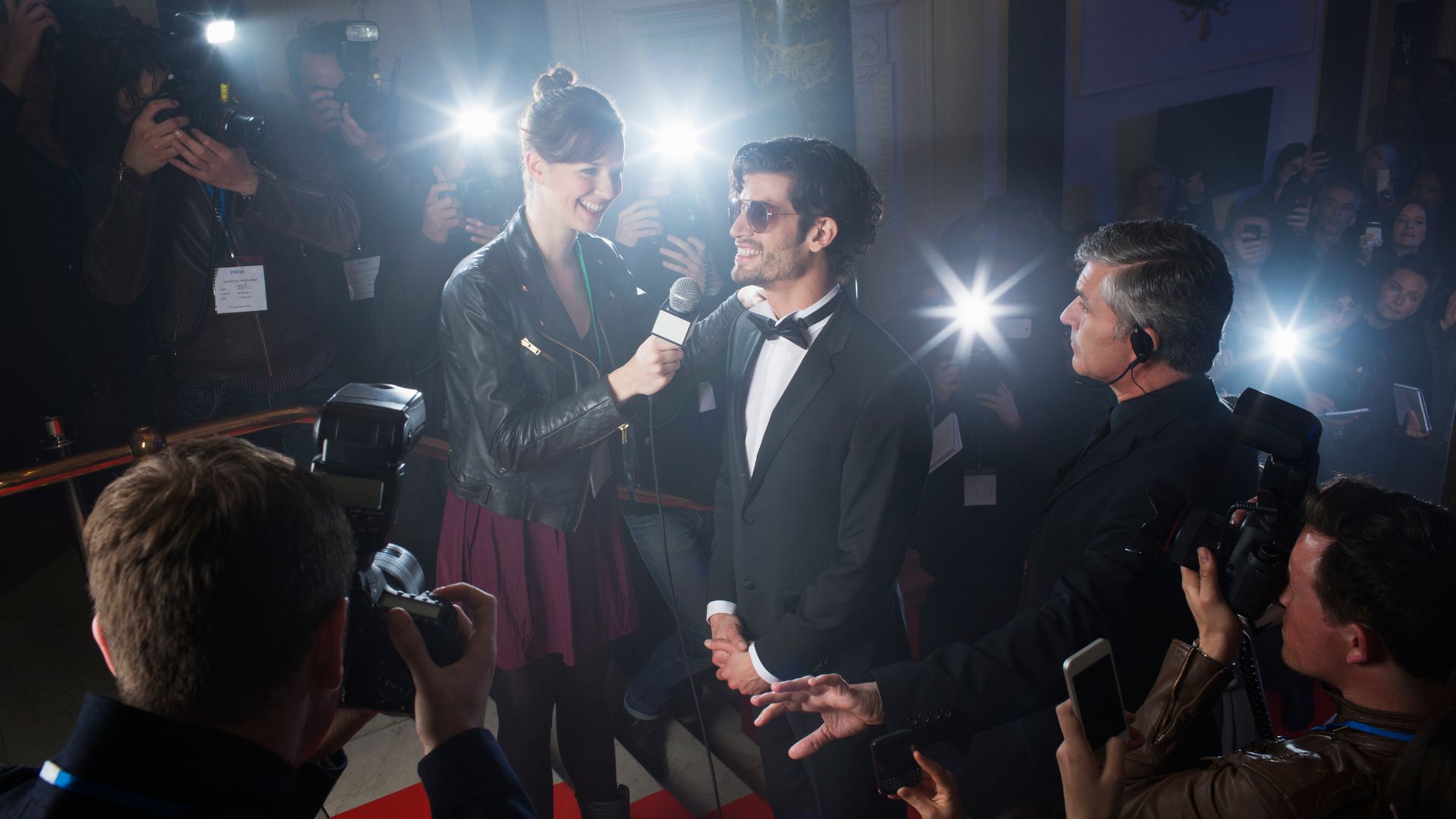Is Being A Celebrity ‘Good’ Or ‘Bad’ In A Trial?
In the electrifying realm of high-profile court cases, fame becomes a dangerous dance between admiration and scrutiny. These trials often unfold like gripping dramas, captivating public attention and fanning the flames of controversy. The courtroom, once a place for calm deliberation, transforms into a battleground where justice must fight to be heard above the roar of media frenzy.
This spectacle is what we now call a media trial—where not only the judges but millions of onlookers weigh in on guilt or innocence. In India, this phenomenon has reached a fever pitch. We can see people arguing day in and day out over every twist and turn of cases like the drug case of Aryan Khan or Jacqueline Fernandez’s entanglement in the money laundering scandal – dissecting the minutest details in real-time attributing them to verified or unverified sources.
As the glare of fame intensifies, so do the questions. Can justice prevail when the court of public opinion casts its verdict before the law does?
Understanding Media Trials

A media trial unfolds when the media assumes the role of an unofficial courtroom, casting a spotlight on a case and steering public perception. This phenomenon has particularly gained traction in famous court cases involving celebrities and high-profile individuals in India. The media’s coverage often hints at guilt or innocence long before the courts reach a verdict—raising the question of whether justice is truly being served, or if something more covert is at play.
Could media influence sway the outcome of these trials, or perhaps, shape the narrative for reasons yet unknown? Media trials may prejudice public opinion, apply pressure on the judiciary, or even distort witness testimonies. Such scenarios, while not proven, raise concerns about hidden motives behind sensationalist reporting. For the accused, the damage can be irreparable, regardless of a final judgment of innocence—reputations tarnished forever.
To safeguard against these potential influences, courts occasionally impose gag orders to curtail media coverage, and laws exist to limit external interference during ongoing trials. But, one can’t help but wonder if these measures are enough. In the clash between press freedom and the right to a fair trial, who truly holds the reins of justice? And is there more happening behind the scenes than meets the eye?
Advantages of Being a Celebrity in a Trial

In high profile court cases, fame often becomes a powerful tool for the accused, shifting the scales in ways that might not be available to the average person. Celebrities, with their constant media attention, seem to influence how the public—and perhaps even the courts—perceive them. Take the Aryan Khan Drug Case or Rhea Chakraborty’s trial, where widespread media coverage sparked waves of sympathy for the accused, drawing attention to potential injustice in their treatment.
The outpouring of public support, particularly from fellow celebrities, seems to add a new layer of pressure on the legal system. Does this influence decisions like granting bail or offering a more lenient path through the legal process? Some would argue that in the case of Salman Khan’s hit-and-run trial, his celebrity status played a role in rallying significant public backing, which may have altered the trajectory of the trial itself.
While these observations stir debate, they also invite a deeper question: is justice truly blind in high profile court cases, or does the glitter of fame obscure its vision?
Disadvantages of Being a Celebrity in a Trial
Being a celebrity in a trial comes with a price. Media trials turn the courtroom into a stage, where fame works against the accused. In famous court cases like Salman Khan’s hit-and-run and Sanjay Dutt’s arms case, public opinion was formed long before the verdict. The pressure on judges and juries is immense. Privacy? Gone.
Personal details, like in Raj Kundra’s pornography case, are splashed across headlines. The emotional toll is heavy. Reputations crumble. The glare of fame makes celebrities targets, often judged more by the court of public opinion than by evidence. In these cases, justice can feel like a distant hope, overshadowed by sensationalism and public scrutiny.
Celebrity Trials in India: A Legal Perspective

In high profile court cases, especially when celebrities are involved, the Indian judiciary often faces a tough job—keeping justice intact while handling the chaos of a media trial. Think back to the Sushant Singh Rajput death case in 2020. The whole country was glued to their screens, with wild speculations everywhere. The judiciary had to step in, reminding everyone to stick to facts and evidence, while warning against over-the-top reporting. They made sure the verdict was based on actual legal findings, not what the media wanted.
In the Sunanda Pushkar case (2014), things could’ve spiralled out of control with her marriage to Shashi Tharoor grabbing headlines. But the court decided to hold in-camera proceedings, keeping the drama out and focusing on the law.
And let’s not forget Salman Khan’s hit-and-run case (2002), where the media coverage was so intense that the court had to impose gag orders, making sure the trial wasn’t skewed by biased reports.
These moves show how important it is to protect fair trials and prevent the media from twisting the facts in these media trials.
Implications for the Legal System
In high profile court cases involving celebrities, ensuring impartiality becomes challenging due to the overwhelming public interest and the impact of a media trial. Celebrities, because of their fame, may either receive undue sympathy or face excessive scrutiny, making it hard for the judiciary to remain unbiased. The case of Major General Nanda (2011), accused of molestation, highlights this. His respected status as an army officer complicated the case, and media attention turned it into a public spectacle.
For legal professionals, representing or prosecuting a celebrity creates ethical dilemmas. Defence lawyers must protect the celebrity’s right to a fair trial, while prosecutors may feel pressure to secure a conviction due to public expectations. Social media further complicates this, as platforms often fuel speculation, influencing public opinion and potentially affecting legal outcomes, as seen in the Sushant Singh Rajput case (2020). The judiciary uses measures like gag orders to control these challenges, but the rapid spread of narratives online still affects justice in such cases.
Conclusion
In famous court cases, being a celebrity can be both a benefit and a hindrance. While fame might bring public sympathy and support, it also exposes the accused to intense scrutiny through a media trial, which can complicate the judicial process. Celebrities may receive more attention, but this can result in biased opinions long before the court’s verdict, impacting their privacy and reputation.
For BA LLB students aspiring to handle high profile court cases, it is essential to understand the balance between legal justice and public perception. They must be prepared to navigate the complexities of media influence while ensuring a fair trial, upholding ethical standards, and focusing on facts and evidence in their future careers. Mastering the art of balancing public interest and judicial impartiality will be critical for handling such cases effectively.
Read more: Competition Law In India: How Is Amazon Case Playing Out?
Do You Know What Career Opportunities BA LLB Offers?





